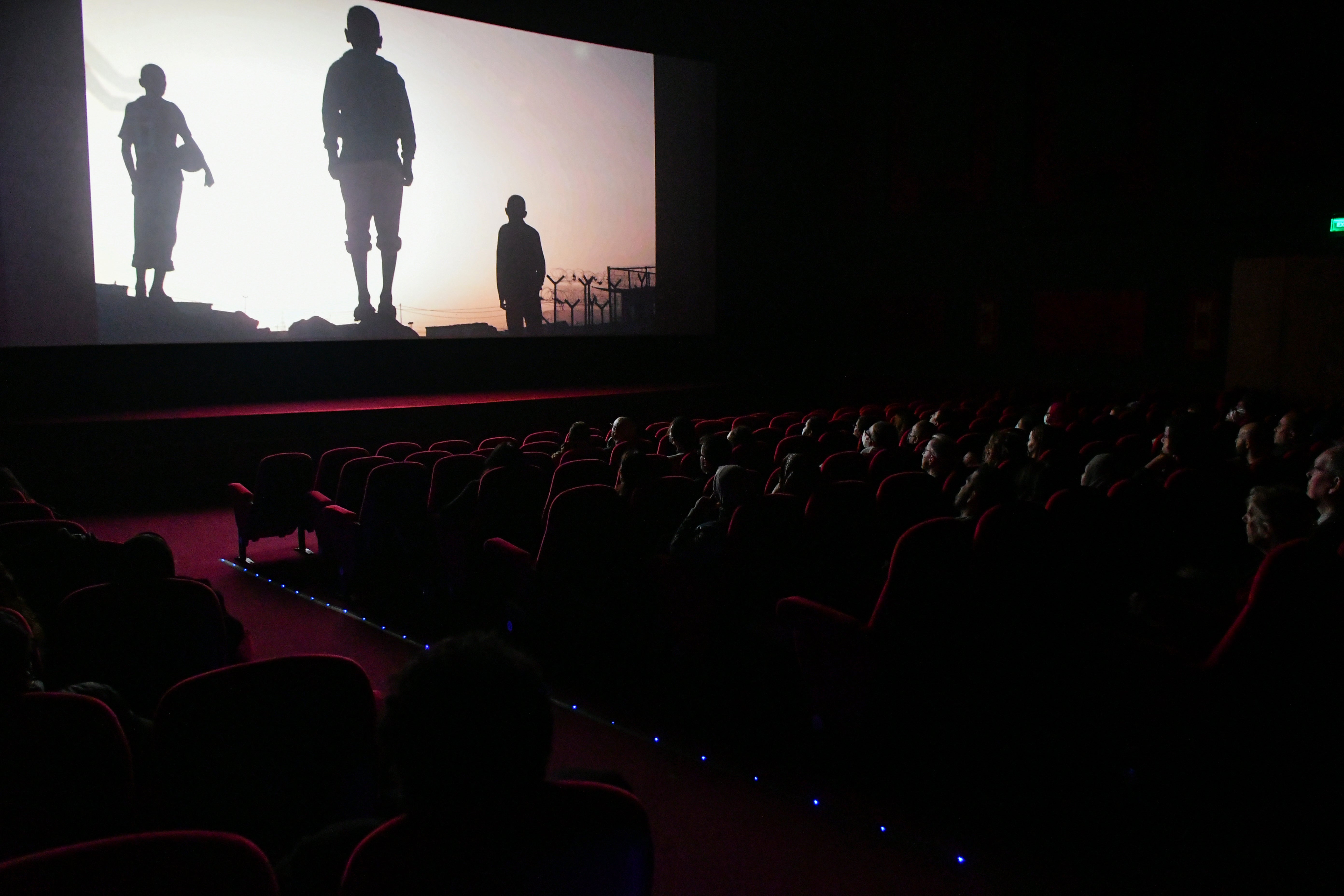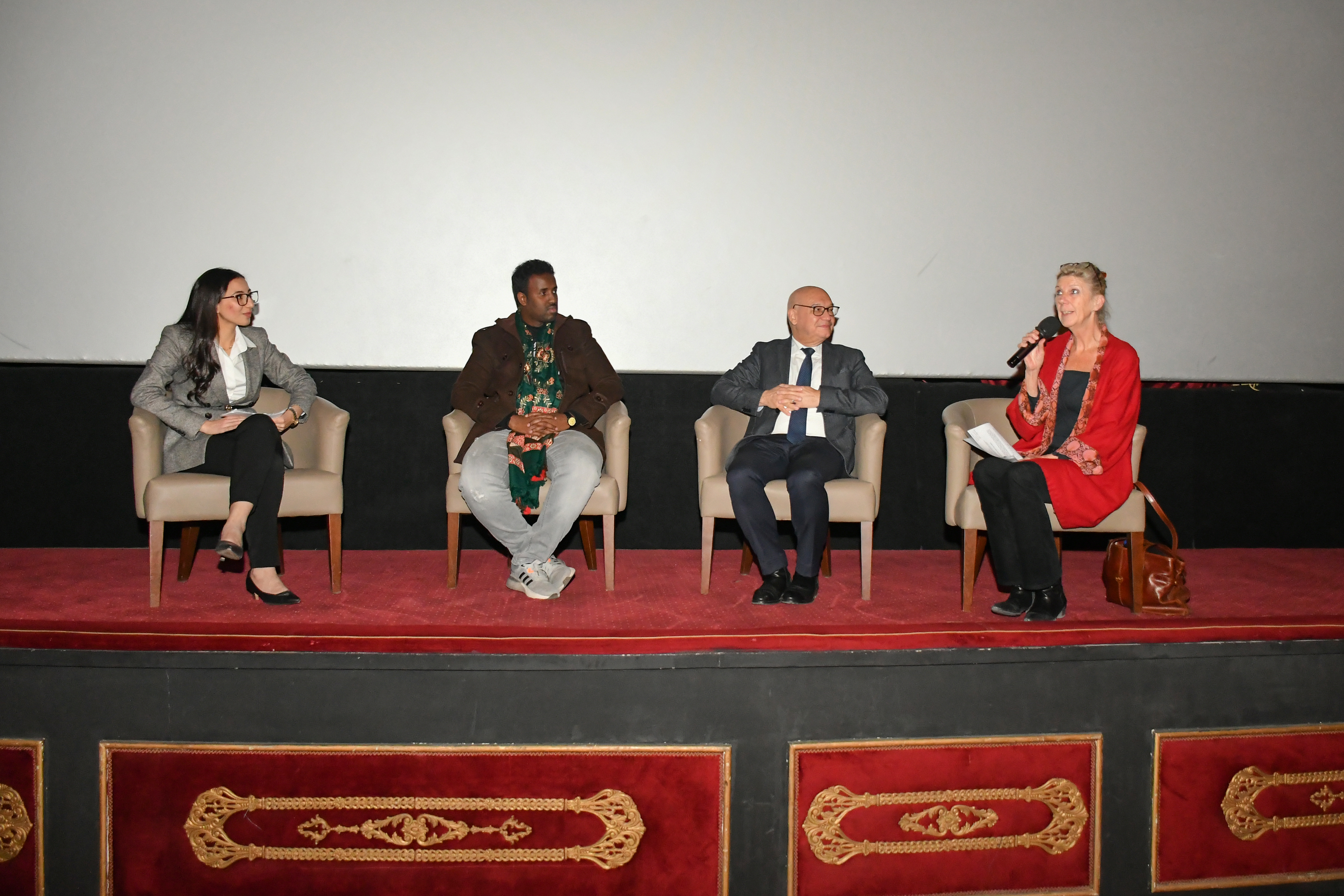The United Nations High Commissioner for Refugees (UNHCR) and the United Nations Population Fund (UNFPA) organized a screening for Captains of Zaatari, on March 14, along with Film Clinic Indie Distribution with the support of the Swiss Embassy in Egypt.
The screening was followed by a panel discussion on “ The Impact of Art and Interactive Learning on the Empowerment of Refugees in Egypt” featuring the film’s director and producer Ali El Arabi with UNHCR representative Mr. Pablo Mateu and UNFPA representative Mrs. Frederika Meijer along with Somali filmmaker and producer, Ibrahim CM.

Captains of Zaatari follows the two best friends, Mahmoud and Fawzi, who live in the Zaatari Refugee Camp in Jordan and who have an undying dream of becoming professional soccer players while facing the difficult reality of their lives. Despite residing being locked in a space that lacks has no facilities and or opportunities for training, they remain hopeful and practice day in and day out. When a world-renowned sports academy visits, both have a chance to make this dream come true.
In his virtual message; El Arabi went through the mission he had when making the film. “It started with a dire need for an impact campaign and the film came after.” He recalls his eight year journey in the Zaatari Camp with his lead characters Mahmoud and Fawzi; “We built a trust and relationship with the boys that led to alianting the camera and crew, when seeing the film for the first time they were surprised they had no memory of the camera presence during most of the shots.”
El Arabi lamented the conditions of the refugees born and raised in Camps commenting, “There are kids who have no idea about the outside world, who know nothing but camp life, we should exert all efforts to ensure they have chances and opportunities beyond that.”
On her part, Meijer said the film is proof that in the difficult conditions of refugee camps, there's a lot of potential, talents and skills and all they need is opportunities.
In Egypt, UNFPA supports Safe Spaces for refugees which host various training sessions and skills building for refugee women and girls, especially the survivors of gender-based violence, such as art therapy, interactive theater, etc.
“We also believe that using arts and sports can be useful in humanitarian interventions, as it allows service providers to easily reach out to the refugees and migrants to talk about the issues they have, and also to allow the refugees and migrants themselves to be able to express their feelings and emotions,” Meijer said.
Mateu shed light on how the voice of refugees can be amplified through creative arts. “Refugees have so many talents and skills that go in different directions. We should think more about them as actors, actresses, filmmakers, about the type of opportunities that could empower them and give them room to express themselves and excel in a different industry; and this is one area UNHCR has been particularly focusing on in Egypt,” he said.
The film World premiered at Sundance Film Festival and was selected as the second-best film in the lineup of the festival and went on to participate in more than 82 international film festivals including Visions Du Reel, Human Rights Film Festival Berlin, CPH:DOX. It then MENA premiered at El Gouna Film Festival where it won Best Arab Documentary. 
Marking his feature documentary debut, Arabi spent 8 years working on the film Captains of Zaatari in Zaatari camp, Jordan with co-producers Ayah Dowara, Amjad Abu Alala, Michael Henrichs, and Consulting Producers Mark Lotfy, Danel J. Chalfen. Dog Woof is the International Distributor of the film while the MENA region distribution is handled by Film Clinic Indie Distribution.The film participated in and was supported by Tribeca Film Institute, Malmo Arab Film Festival, Good Pitch Beirut, Medimed Market. It was also among six projects selected for the work-in-progress Program Final Cut in Venice.





